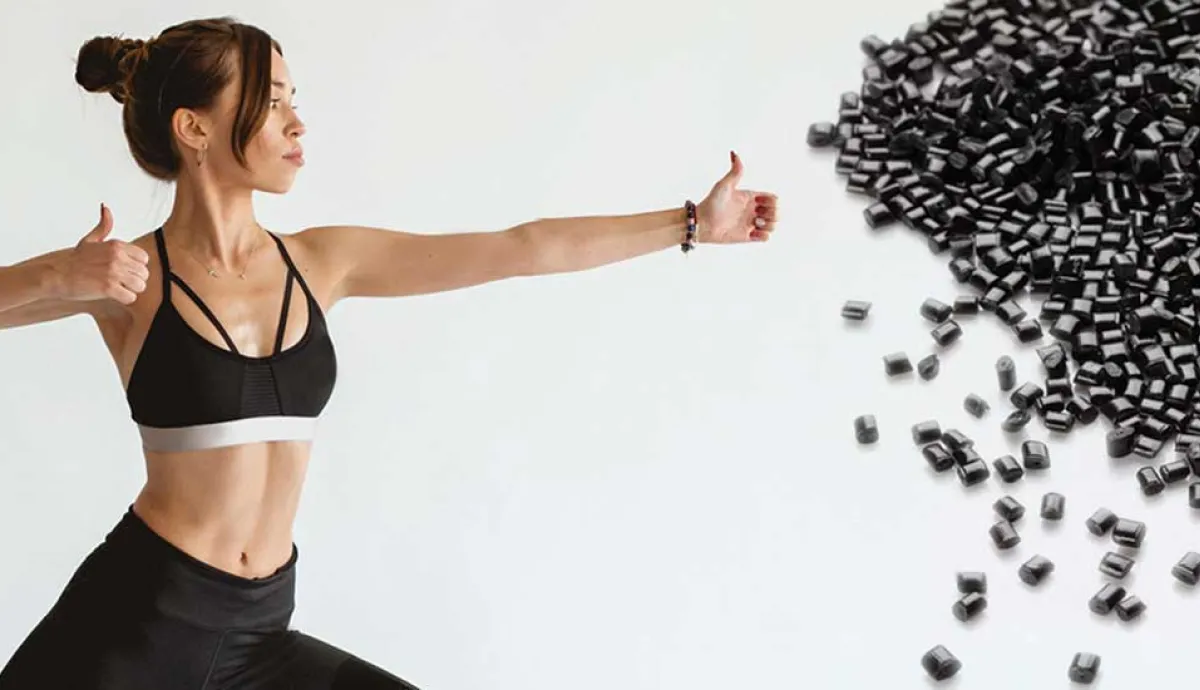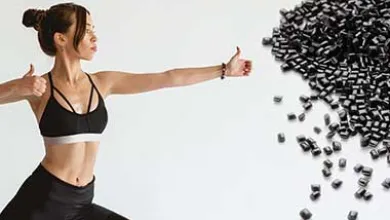The challenge of achieving deep black shades
Intense, deep black shades are a highly sought-after feature in textiles to give them a luxurious appearance, especially in apparel, sportswear, home decor, and automotive applications. Until now, achieving the desired level of darkness, or jetness, has been a challenge due to the compromises it required. For instance, bath-dyeing and piece-dyeing solutions can achieve deep black shades, but they typically require multiple passes, which can increase costs. Spin-dyeing (also known as dope-dyeing) solutions are often easier to process but don’t always reach the same jetness as bath-dyeing. Achieving good lightfastness and washing fastnesses, which are critical requirements for automotive textiles and sportswear, is also challenging without increasing costs.
Avient’s deep black colorants for polyester spin-dyeing
Part of the Renol™ Fiber Colorants portfolio, Avient’s deep black colorants for spin-dyeing are innovative formulations that provide intense jetness and excellent light and washing fastnesses at a moderate cost compared to other deep black solutions.
加工
Renol deep black colorants are provided as color concentrates, also known as masterbatches, which are added to the polyester pellets during fiber extrusion in the spin-dyeing process. By utilizing an optimized concentrate formulation and employing a one-in-one manufacturing and dyeing process, it becomes feasible to attain the desired level of jetness without the need for multiple passes typically required in alternative dyeing methods, such as bath-dyeing. In this video, you can learn more about the manufacturing differences between spin-dyeing and bath-dyeing.
Jetness
Our deep black concentrates show significantly darker shades compared to standard blacks with a Delta L (darkness to lightness) superior to our target of -1.0. Likewise, they have a bluer undertone that intensifies the black shade to the human eye with a Delta b (blueness to yellowness) superior to our targeted -0.5. The concentrates can be tailored to achieve the desired level of jetness while also taking into account other considerations such as lot-to-lot consistency, cost, and formulation transfer to different regions and technologies.
Color stability
The color is embedded into the polyester fibers during the spin-dyeing process, which means it won’t bleed out of the yarn when combined with other colored yarns, including light and white ones. Renol deep black colorants also provide excellent resistance to washing and light exposure. Tests show a light fastness of 7 on the blue scale and 4 to 5 on the grey scale (FAKRA) and rubbing and washing fastnesses of 4 to 5.
|
Fastness tested
|
Renol deep black
|
Rating range
|
Norm
|
|
Light fastness (blue scale)
|
7
|
1-8 (low to high)
|
DIN EN ISO 105-B02:2014
|
|
FAKRA (grey scale)
|
4-5
|
1-5 (low to high)
|
DIN EN ISO 105-B06
|
|
Washing fastness (grey scale)
|
4-5
|
1-5 (low to high)
|
DIN EN ISO 105-C04
|
|
Rubbing fastness (grey scale)
|
4-5
|
1-5 (low to high)
|
DIN EN ISO 105-P02
DIN EN ISO 105-X12
|
|
Dry heat fastness (grey scale)
|
4-5
|
1-5 (low to high)
|
DIN EN ISO 105-P01
|
Tests carried out by external laboratory
可持续发展
Spin-dyeing is a one-in-one manufacturing and dyeing process; it reduces the energy needed compared to traditional bath-dyeing, which includes several steps from the production of the yarn to its dyeing. Spin-dyeing is a process that uses no water and creates no wastewater, making it a more sustainable dyeing process. You can learn more about the advantages here. In addition, the deep black masterbatches are suitable for spin-dyeing recycled grades of polyester.
Our team of fiber experts provides product guidance and assistance in any process optimization or fine-tuning stage, from developing custom masterbatches to using the correct processing settings for optimal spin-dyeing results.
You can learn more about the deep black color concentrates here or about our other color and additive solutions for spun-dyed fibers in our brochure.



